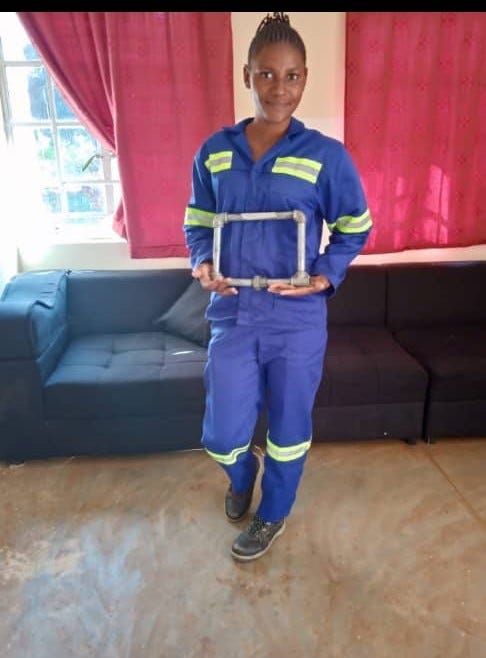Vocational Training Program Empowers Girls in Malawi, Alleviating Financial Barriers
The TEVET Authority introduces the SAVE Project, providing financial support for girls to pursue vocational training and become self-reliant.
NSANJE, MALAWI — The Technical Entrepreneurial, Vocational Education Training (TEVET) Authority has launched the Skills for a Vibrant Economy (SAVE) Project, aimed at empowering young girls in Malawi through vocational training, writes Cornelius Lupenga.
The project comes as a response to the financial challenges faced by many girls who aspire to join vocational skills programmes but lack the necessary resources.
Grace Anthony Mchawa, a second-year student at Stephano Foundation College, shared her experience of overcoming these barriers.
"After performing below my expectations in the Malawi School Certificate of Education (MSCE), my father encouraged me to pursue vocational skills," Mchawa explained.
"Although I initially faced difficulties in plumbing, a male-dominated field, I eventually caught up with my classmates and overcame my self-doubt."
Mchawa, from Chikanzi village in the area of Senior Chief Mbenje in Nsanje, highlighted the importance of the SAVE Project in supporting girls who struggle to afford vocational courses.
"This project will provide opportunities for girls, including young mothers who have recently completed their MSCE, to gain the skills needed for self-reliance," she emphasised.
Elwin Sichiola, the Executive Director of TEVET, confirmed the introduction of the SAVE Project and its financial benefits for female students.
"Under the project, bursaries will cover registration fees, tuition fees, and examination fees," Sichiola stated. Additionally, the female students will receive a monthly allowance to support their vocational training.
Sichiola further revealed that the SAVE Project aims to graduate 65,000 girls in various fields over five years.
The project is funded by the World Bank, with a total investment of $100 million. Half of the funding is provided as a grant, while the other half is a loan to the Malawi Government.
The implementation of the SAVE Project is expected to address the financial hurdles that have hindered girls from pursuing vocational training.
By empowering young girls with the necessary skills, the project aims to create a more vibrant and self-reliant economy in Malawi.



